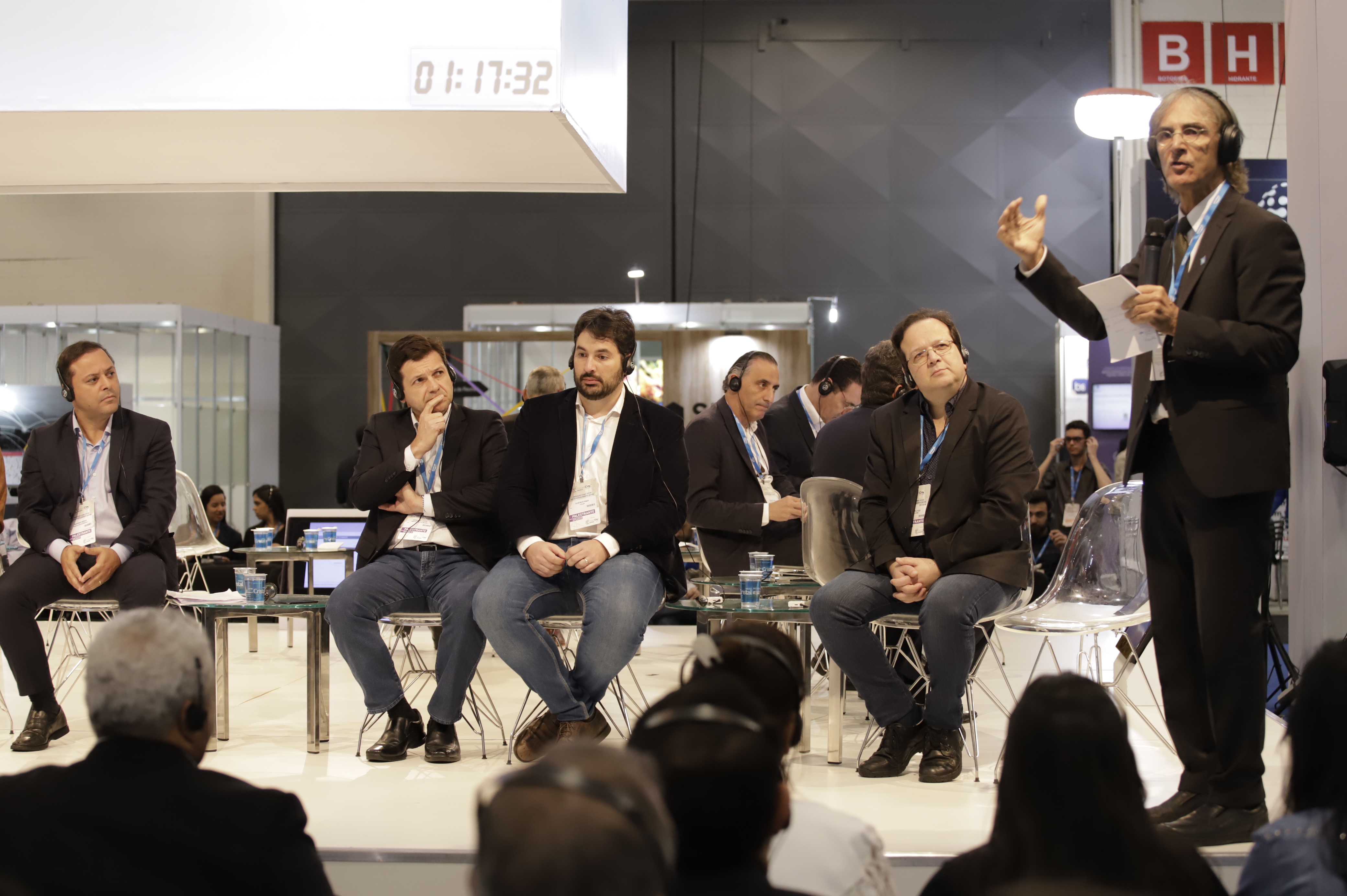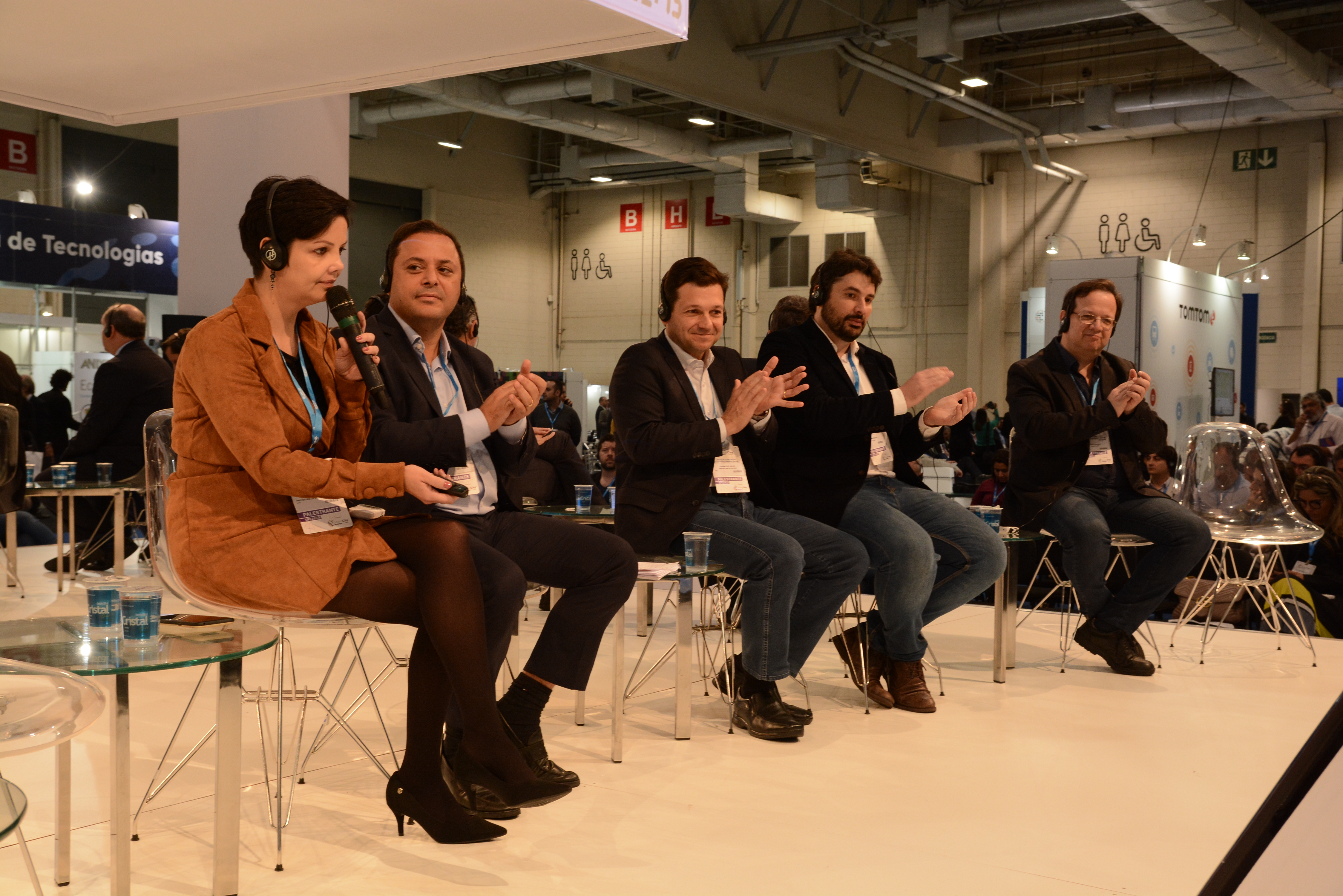The Smart City Business Brazil Congress & Expo (SCBBrC & E) was held between 22 - 24 July 2019 in Sao Paulo. The event brought innovation to the forefront and displayed how technology can bridge the gap between the residents and public authorities. It also aimed to show how innovative consultative processes can scale up citizen participation, capture their views on the effectiveness of public policies that affect their lives and how innovation can raise citizens’ awareness about the 2030 Agenda for Sustainable Development.
The expo gathered more than 4,000 participants with 250 lecturers and presenters, including UN-Habitat personnel, business leaders, mayors of Brazilian cities along with representatives from civil society.

A key panel discussion was, “Localizing SDG11 in the Municipalities of Brazil. How innovation and technology can bridge the gap between citizens and local government”. This was moderated by Claudio Acioly, Head of Capacity Development Unit of UN-Habitat, and it presented the results of an innovative and participatory tool applied in Brazil, which mobilized nearly 10,000 citizens through a mobile phone application. The participants included Gustavo Maia, the CEO of Colab and Jose Palazzi, the Director of sales and business development of Qualcomm. Rodrigo Neves Barreto, Mayor of Niteroi, Geraldo Julio, Mayor of Recife and Daniela de Cassia Santos Brito, Mayor of Monteiro Lobato were invited as speakers in the discussion.
“It was very interesting to know how municipalities of different sizes are promoting their policies to make their cities more intelligent and participatory”, Marilia Sorrini Peres Ortiz, sub-Secretary of Planning at the Secretaria do Planejamento e Gestão (SEPLAG) in Niterói, said after the event to highlight the relevance and effectiveness of innovative ways in data collection, analysis and participatory and responsive policy-making.
“It is fundamental to listen to the population and capture their ideas about how their city is evolving towards SDG11 and allow more accurate and collective analysis of the reality of Brazilian cities,” said Claudio Acioly, Head of Capacity Development Unit of UN-Habitat before the launch of the consultation. His statement was reenforced by the leaders of the project, who emphasize that citizens’ collaboration and transparency are inevitable components of an efficient public management.
The “Sustainable Cities and Communities Consultation” was carried out between October 2018 and February 2019 in 829 Brazilian cities, made possible through the partnership of Colab and UN-Habitat. Colab is a citizen-to-government engagement platform that offers a social network for citizens, focused on issue reporting, urban improvement suggestions and public services evaluations, as well as participation in the decision-making process.
The consultation involved a survey related to the Sustainable Development Goal 11 (SDG11), indicators and capacity building, which engaged citizens, civil society organizations and local governments. The feedback from the consultation made it possible for decision makers to better understand and get an insight into the effectiveness of their urban policies. Marilia Sorrini Peres Ortiz added that the three examples from the cities of Monteiro Lobato, Niterói and Recife, with the results of the consultation presented at the congress, demonstrated “how the 2030 agenda has been applied to the planning and monitoring of public policies” in a more detailed manner.
Daniela de Cássia Santos Brito, mayor of Monteiro Lobato, added, “despite the fact that larger cities usually have more financial resources to implement innovation policies and the New Urban Agenda, Monteiro Lobato was the first city in the state of Sao Paulo to publicly assume the commitment to the consultation”.
The citizen consultation falls under the Project “Accountability Systems for Measuring, Monitoring and Reporting on Sustainable City Policies in Latin America” funded by the UN Development Account and implemented by UN-Habitat in collaboration with ECLAC.
Due to the success of the consultation in Brazil, UN-Habitat with the leadership of its Capacity Development Unit launched a similar consultation on 5 August 2019, involving the cities of La Paz and Tarija in Bolivia and Chimbote and Trujillo in Peru. The project has been realized by the partnership of OS City, Foro Ciudades para la Vida (Peru) and the Fundación para el Periodismo (Bolivia).
For further information about the consultation in Brazil, please visit the report in Portuguese here.

Banner photo:
Geraldo Julio, mayor of Recife (left), Gustavo Maia, CEO of Colab and Jose Palazzi from Qualcomm presenting the advantages of the mobile phone application during the panel discussion. 23 July 2019, Sao Paulo, Brazil [Smart City Business America]